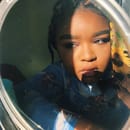By reading the title of this article, you might say “WHAT?” An oppressed group excluding another marginalized group? Yes, in 2019, there is still underlying homophobia (or queerphobia) within the black community.
Photo by Good Men Project
Being homophobic is not a healthy trait to have, and for an oppressed group to discriminate against another marginalized group is troubling.
Does social media contribute?
We all love social media and we usually get most of our news from it. One popular black-owned social media/news company, The Shade Room, is known for its postings of trending news, community news and entertainment. The social media account has racked up about 14.8 million followers on Instagram.
The Shade Room is also notoriously known for their comments from other followers. You may find yourself going on the account just to scroll through the comments. But whenever there is anything queer-related or trans-related, the comments are flagged as hateful, transphobic and homophobic.
Shown below is a post of Lil Uzi Vert, the Philly hip-hop artist is not only known for his music but for his style, also. He was previous pictured wearing women’s clothing (see below) and received an overwhelmingly negative response from users on social media. These hateful comments are shown below in this post from The Shade Room:
Photo by The Shade Room
Now, this does not generalize the entire black community, but it goes to show that there is some work that needs to be done with the acceptance of queerness.
Many of the comments had patterns of homophobia. It is interesting to note that the caption was, “Does hypermasculinity perpetuate homophobia in the black community?” and most of the comments were along the lines of “this is going to mess our children up.”
Homophobia on Campus
Photo by Black Student Alliance
The Georgia State’s Black Student Alliance former president, Jasmine Bell, reached out to the Panthers for Black Feminism’s co-founder, Ebony Short, in regards to an e-board member who stated that BSA should not “… endorse Pride because being gay impedes the black family.” Bell reached out to P4BF for advice and said that the BSA president did not want to go forth with releasing a statement that was said by the E-board member in fear of “shaming” the person. These statements made by the E-board member are seen as having homophobic tendencies. Saying that being gay impedes the black family is saying that because someone is gay they can’t reproduce or have a child that will continue the black race. Well, this is entirely false because same-sex couples can have children of their own with the help of insemination, surrogacy, adoption, etc. It seems as though a number of people in the black community lack to understand what queerness is. It is necessary for an increase in the effort to educate ourselves and peers so statements such as these aren’t continued.
Hearing from Students:
It can be even harder to come out when you are from a different culture. The cultural difference can be masked with such homophobia and transphobia that it is impossible for those who have struggled with their identity to come out.
Sunny H., a freshman at Georgia State, says that growing up in a Jamaican household and coming out (sexual and gender identity) was very hard. Their experiences with homophobia in the black community came from their parents and school. Their parents would tell them at an early age that is is not safe to be queer.
“Like I know they really don’t like the trans things. If my mom knew that you were a lesbian and we were hanging out she would think that something was going on,” Sunny said.
Sunny also recalls that when dating outside of their race they found it easier to come out to their exes parents. They would go over their exes house and talk about their sexuality with their exes parents. They found that their exes parents were much more accepting than their own. After the fact, they’d go home and mask their own identity because of their family’s homophobia and transphobia.
Now
Source by GIPHY
It is unfortunate that in 2019 we still see traits of homophobia (and even transphobia). There needs to be new changes in perceptions within the black community when it comes to accepting queerness. This could be done through media platforms such as social media, magazines, billboards, and education. If there was more representation then maybe queerness would be accepted more.



